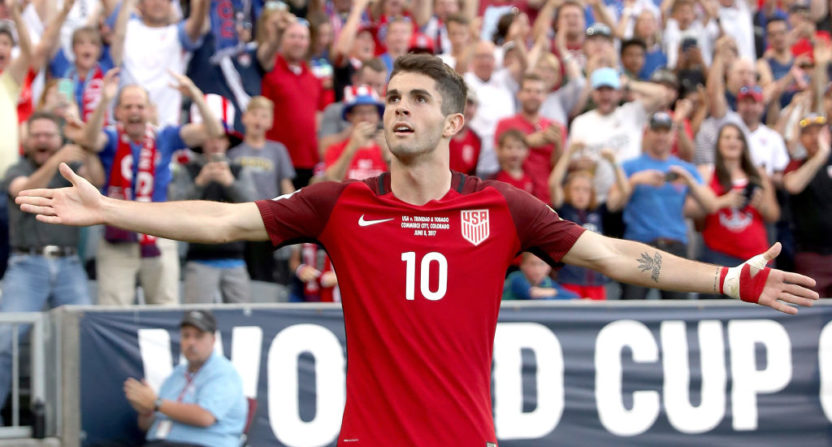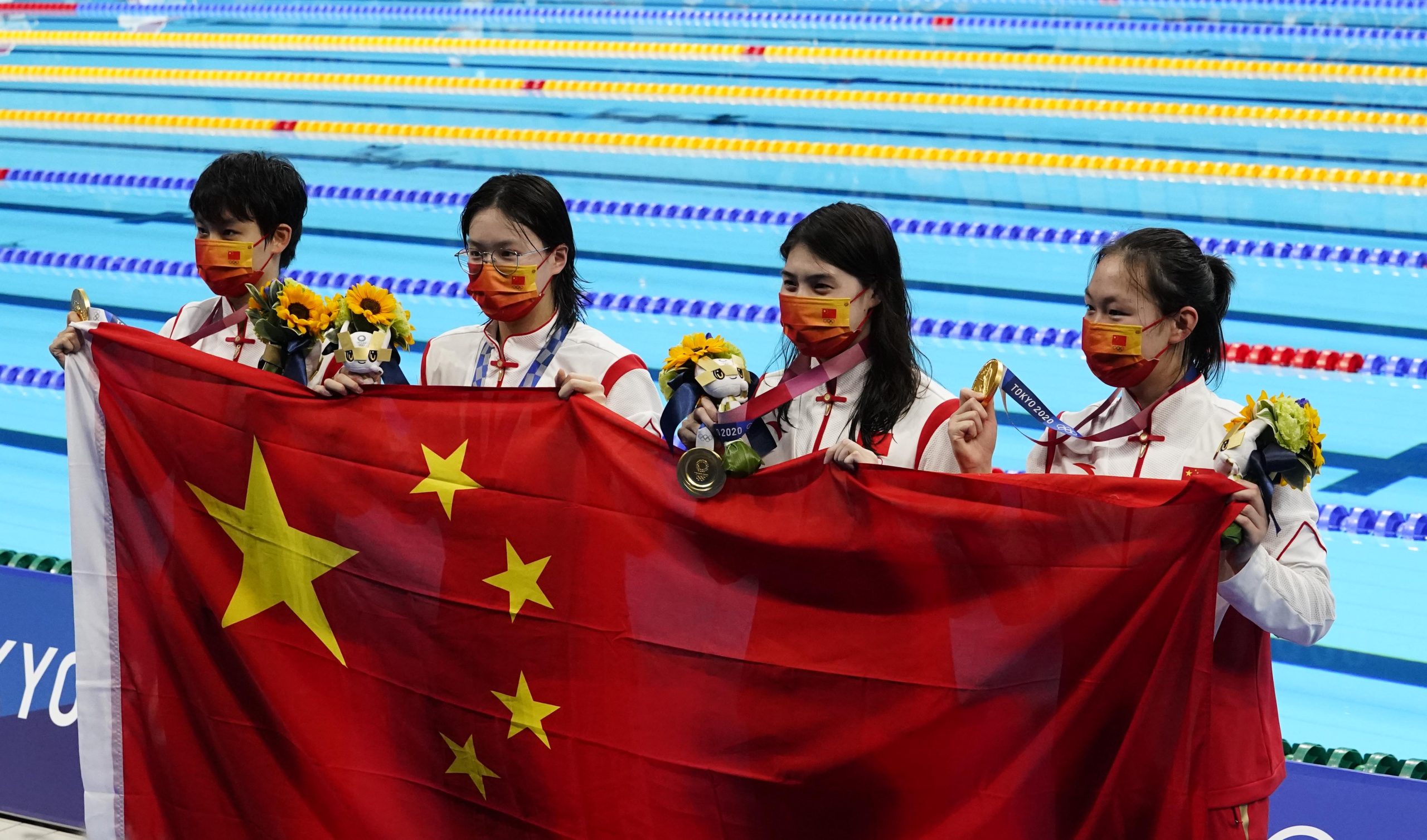Though he only turned 19 in September, Christian Pulisic is perhaps already one of the most accomplished American soccer professionals ever. A lock starter at Borussia Dortmund, one of Germany’s top teams, Pulisic has spent the last year or so playing in the Champions League while spending international breaks cementing himself as the key (and too often, only) threat of the USMNT’s doomed World Cup qualifying campaign.
Those accomplishments, his ability, and his recent exposure to U.S. Soccer’s development program put Pulisic in an interesting place of power when it comes to commenting on the current state of the American soccer program. And in a piece for The Players’ Tribune, Pulisic didn’t hold back on how things could be better.
Perhaps the most interesting portion of his comments detailed his own decision to move to Europe at a very young age:
But one thing that I’m not sure people realize, when they talk about my game, is just how lucky I’ve been to have a Croatian passport — and just how much of a difference it’s made for me.
As a result of my dual citizenship, I’ve been able to play in Europe, training at the Dortmund academy, since I was 16. Without it? I would have had to wait until I was 18. And for a soccer player … man, ask anyone and they’ll tell you — those age 16–18 years are everything. From a developmental perspective, it’s almost like this sweet spot: It’s the age where a player’s growth and skill sort of intersect, in just the right way — and where, with the right direction, a player can make their biggest leap in development by far.
That’s a key distinction. Another heralded teen prospect, forward Josh Sargent, has had a deal in place to move to Werder Bremen since September, but the 17-year-old can’t officially sign there until February, when he turns 18. For a player good enough to be on the roster for tomorrow’s senior friendly in Portugal, that’s a lot of lost time.
But as the rules on international youth prospects are unlikely to change in the near-term, it becomes more important to improve the development they receive before they leave for Europe. Pulisic has thoughts on that as well:
In the U.S. system, too often the best player on an under-17 team will be treated like a “star” — not having to work for the ball, being the focus of the offense at all times, etc. — at a time when they should be having to fight tooth and nail for their spot. In Europe, on the other hand, the average level of ability around you is just so much higher. It’s a pool of players where everyone has been “the best player,” and everyone is fighting for a spot — truly week in and week out. Which makes the intensity and humility that you need to bring to the field every day — both from a mental and physical perspective — just unlike anything that you can really experience in U.S. developmental soccer.
[…]
I also understand, of course, that — even with the option to leave — leaving the States might not be for everyone. Staying is fine, and I totally respect it. But at the same time, I’ve gotta say: It really does frustrate me, when I watch MLS, and I see our best U-17 players — who, again, are so talented and so capable — being rostered … but then not being put on the field much to actually play. I watch that, and I just think about how I was given a chance … a real chance … and it changed my life. Why then are we seemingly hesitant to allow these other talents to blossom?
And on those points, Pulisic seems dead-on. Too often, American soccer coaches reward older players simply for being older, conflating experience with expertise. Even Jurgen Klinsmann, for all his supposed forward-thinking, was hesitant to use Pulisic; he didn’t even start the 2016 Copa America semifinal against Argentina, with Kyle Beckerman, Gyasi Zardes, Graham Zusi, and Chris Wondolowski all seen as superior options en route to a 4-0 thrashing.
Three months later, Pulisic came off the bench for Dortmund to set up an equalizer in a critical Champions League match against Real Madrid. Apparently he learned quite a bit in those three months.
That American commitment to veteran contributions was felt throughout the failed Hexagonal round, despite Pulisic being the most consistent player on the roster. Instead of noting that and adjusting player selection accordingly, the coaching staff apparently viewed Pulisic as an outlier, succeeding in spite of his youth. The old stalwarts continued to make appearances, their places secure thanks to the odd, don’t rock the boat mindset that doesn’t make a lot of sense for international soccer, given the general lack of familiarity among players.
Now, facing a few years before a competitive match, it makes more sense than ever to turn to a younger generation of players. But as Pulisic notes, that generation is only as good as the developmental system in place around it. Hopefully more American teams realize just how effective players can be, regardless of how young they are.







